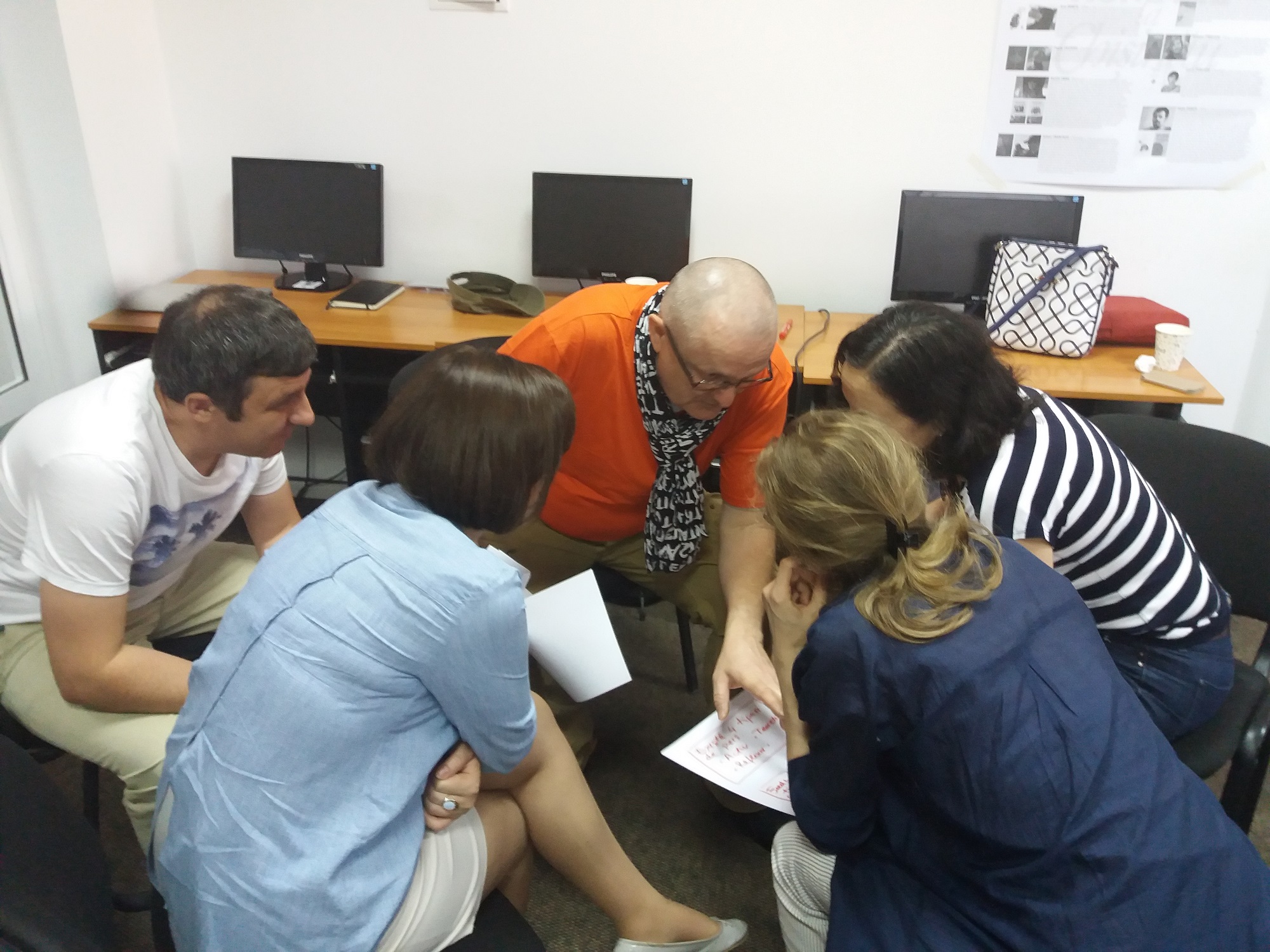Political Journalism: Learning to See the Hidden Part of the Iceberg

What happens on the political arena of Moldova? To what extent do international events affect us? Who are the main political actors and how do we deal with them? What is manipulation and political propaganda? How should we cover electoral campaigns and how can we “sight” fake news and photos? What distinguishes a political article and how to “pack” it so that it is interesting and understandable for the media consumer? These are only a few of the topics discussed at the second specialized course this year – Political Journalism.
The course lasted three weeks and was divided into several key modules. The first module – “Introduction to Political Journalism” – was primarily focused on theoretical notions. Trainer Alina Țurcanu, editor of Radio Free Europe, discussed with the students about parties, political actors, and manipulation and propaganda in the media. The students found out what political message is and who is responsible for it. Another theme discussed regarded the subject of concentration of media ownership. The future journalists discovered what happens when a politician owns several media outlets and noted some helpful tips and ideas. Alina Țurcanu recommended the students to never work with assumptions and interpretations in journalism. “Always remain cold and emotionless. Be fair and honest with yourselves and with your public,” the trainer said.
What is a political system and what are the financial sources of political parties in our country? These are the issues discussed in the second module. With the journalist and political analyst Anatolie Golea, the students talked about the particularities of a political discourse, analyzed the Law on Parties, and “deciphered” the particularities of talk-shows and other political programs, as well as the efficiency of communication between journalists and press services.
Ethical journalism in the “fake news age” was the theme of the third module, which was held at the SAJ for the first time. The students tested some of the tools to spot fake news, photos and websites, being guided by the journalist Lilia Zaharia, who is also a graduate of the School. The young people analyzed some editing tricks used to make fake news and listed the traps journalists often get into. “Don’t let yourselves be manipulated. Check three times before publishing any information. Work only with numbers and accurate data,” the trainer said.
The last module was dedicated to international and European political journalism. Its aim was to familiarize the students with details, documents and information about the European Union, relations between Moldova and the EU, the Association Agreement and the Free Trade Area with the EU, but also about the role of the media in the coverage of these issues. In order to help the students understand how international institutions work, the course trainer Sorina Ștefârță invited two experts to the School. The first guest – Sanda Sandu, the program coordinator at the Information and Documentation Center on NATO – spoke to students about the Moldova–NATO partnership, about the main objectives of reforms in the areas of defense and security, and about the Moldova-NATO Individual Action Plan for 2017-2019. The expert mentioned the importance of the media involvement in the coverage of the NATO issue. “The audience must be properly and objectively informed about what the partnership between Moldova and NATO means.”
The second guest, Dionis Cenușă, discussed with the SAJ students about the relations between Moldova and the European Union. The “Expert-Group” political analyst explained the role of the European institutions, pointed out the phases and effects of visa liberalization for the citizens of our country, and commented on certain details of the Association Agreement between Moldova and the European Union.
Starting today and until the end of March, the SAJ is having the course of Investigative Journalism.
